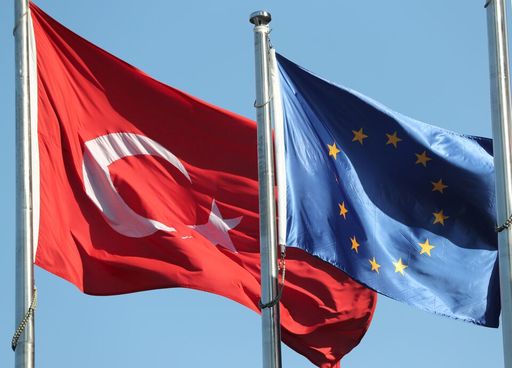A week into Israel and Iran trading missile and drone strikes on one another, the US entered the battlefield by launching air strikes on three Iranian nuclear facilities, dramatically escalating tensions and pushing the region to the brink of a broader regional conflict.
The Israeli military actions on Iran raise concerns about compliance with international law, reflecting a pattern of assertive policies associated with Prime Minister Benjamin Netanyahu’s leadership.
By bombing Iranian territory, Israel flouted Article 2(4) of the UN Charter — which prohibits the use of force against sovereign states — and weaponised the same discredited “pre-emptive attack” doctrine former US President George W. Bush used to justify the 2003 Iraq War.
This escalation falls outside the scope of lawful self-defence under Article 51 of the UN Charter.
Even as the world condemns Israel and US actions, few actors are positioned to mediate this crisis than Türkiye.
Türkiye, with its historic neutrality in the Muslim world, proven mediation record — from Ethiopia-Somalia and Azerbaijan-Armenia mediation talks, to the Black Sea grain deal — and President Recep Tayyip Erdogan’s established working relationship with US President Donald Trump, could broker a face-saving de-escalation.
A regional escalation would spawn destabilising effects that all parties have a shared interest in preventing.
Netanyahu’s military action against Iran should be understood within the context of the complex historical and geopolitical tensions between the two states.
While Hamas’s October 7, 2023, attack on Israel and Israel’s subsequent April 2024 strike on Iran’s consulate in the Syrian capital Damascus — a clear breach of the Vienna Conventions on Diplomatic (1961) and Consular Relations (1963) — precipitated an immediate cycle of retaliation, the root conflict stems from decades of regional rivalry, mutual security concerns, and irreconcilable strategic interests.
While Iran has faced sanctions following the US withdrawal from the 2015 nuclear agreement — Joint Comprehensive Plan of Action (JCPOA) — it is assumed that Israel has amassed 200-300 nuclear warheads outside the oversight of the International Atomic Energy Agency.
Washington’s reticence regarding this seeming contradiction prompts reflection on its principled standing.
Türkiye’s open channel with key actors
Türkiye is uniquely qualified to intervene in the unfolding crisis.
Unlike Arab states, which are constrained by dependence on US security guarantees, or China and Russia, whose involvement faces automatic Western distrust, Türkiye uniquely maintains open channels with all key actors — Washington, Moscow, Tehran, and even Israel — while commanding rare credibility across the Muslim world.
President Erdogan has criticised both Israel’s war crimes in Gaza and Iran’s regional proxies, positioning Türkiye as an honest broker.
Its mediation track record is proven: in 2022 and 2024, Türkiye brokered the Ethiopia-Somalia talks amid war fears.
Under President Erdogan’s leadership, Ankara has actively supported peace efforts between Azerbaijan and Armenia, leveraging its regional influence to facilitate dialogue and de-escalation.
After decades of conflict, a lasting peace agreement now appears within reach between Baku and Yerevan.
The 2010 Turkish-Brazilian brokered deal — where Iran agreed to ship 1,200 kg of its enriched uranium (70 per cent of its stockpile) to Türkiye in exchange for medical reactor fuel — demonstrated Ankara’s ability to craft pragmatic solutions, though scuffled by the US.
Critically, President Erdogan’s direct channel to Trump — demonstrated when the US lifted Syria sanctions following Ankara’s mediation efforts — could prove decisive in influencing Prime Minister Netanyahu, whose government relies heavily on sustained US military and diplomatic backing.
Türkiye also has the means to offer both sides meaningful concessions.
For Iran, Ankara could facilitate revived JCPOA negotiations and even serve as a neutral host for direct talks — much like its role in the Ukraine-Russia grain diplomacy.
For Israel, Türkiye could help broker security guarantees, potentially linked to progress on Palestinian statehood and broader regional stability.
The diplomatic framework already exists; what has been lacking is a mediator capable of bridging the deep political distrust between the parties.

It’s time to act
The Turkish president must act swiftly.
First, just as Türkiye mediated during the Ethiopia-Somalia tensions, President Erdogan must continue to leverage Ankara’s OIC (Organisation of Islamic Cooperation) leadership by transforming the Muslim world’s political will into actionable mediation heft.
The 51st Session of the Council of Foreign Ministers of the OIC held on June 21, 2025, in Istanbul — where Erdogan urgently called for Islamic unity amid the Iran-Israel conflict and rising global tensions — demonstrates Ankara’s unique capacity to channel collective Muslim solidarity into concrete conflict resolution efforts.
Second, the president should offer Istanbul as a neutral ground for talks between the conflicting parties, replicating the Ukraine-Russia grain negotiations model and the 2025 Ukraine peace talks.
Third, Erdogan should immediately engage Trump in private diplomacy — pressing for de-escalation and an immediate ceasefire, offering to host mediation talks between the warring parties and urging him to halt all military operations against Iran to create space for renewed diplomatic efforts.
With US air strikes on Iran inflaming tensions, every moment counts. Time is of the essence.
The Middle East cannot afford another war of choice. Türkiye has the tools to stop it — but only if President Erdogan seizes this moment.
By invoking international law, leveraging its diplomatic capital, and mobilising Global South solidarity, Ankara can isolate warmongers and resurrect the JCPOA.
The prospect of armed conflict between nuclear-capable states in the region would represent a systemic failure of diplomacy with generational consequences.
But this future is avoidable. History will judge this moment not by who fired first, but by who acted last to prevent catastrophe.
The author, Dr. Blerim Mustafa, serves as Special Advisor to the President of the International Eurasia Press Fund (Azerbaijan), and lectures on International Relations and Politics at the University of Rhone (France) and the Geneva Nations Institute (Switzerland).
Disclaimer: The views expressed by the author do not necessarily reflect the opinions, viewpoints and editorial policies of TRT Afrika.



















